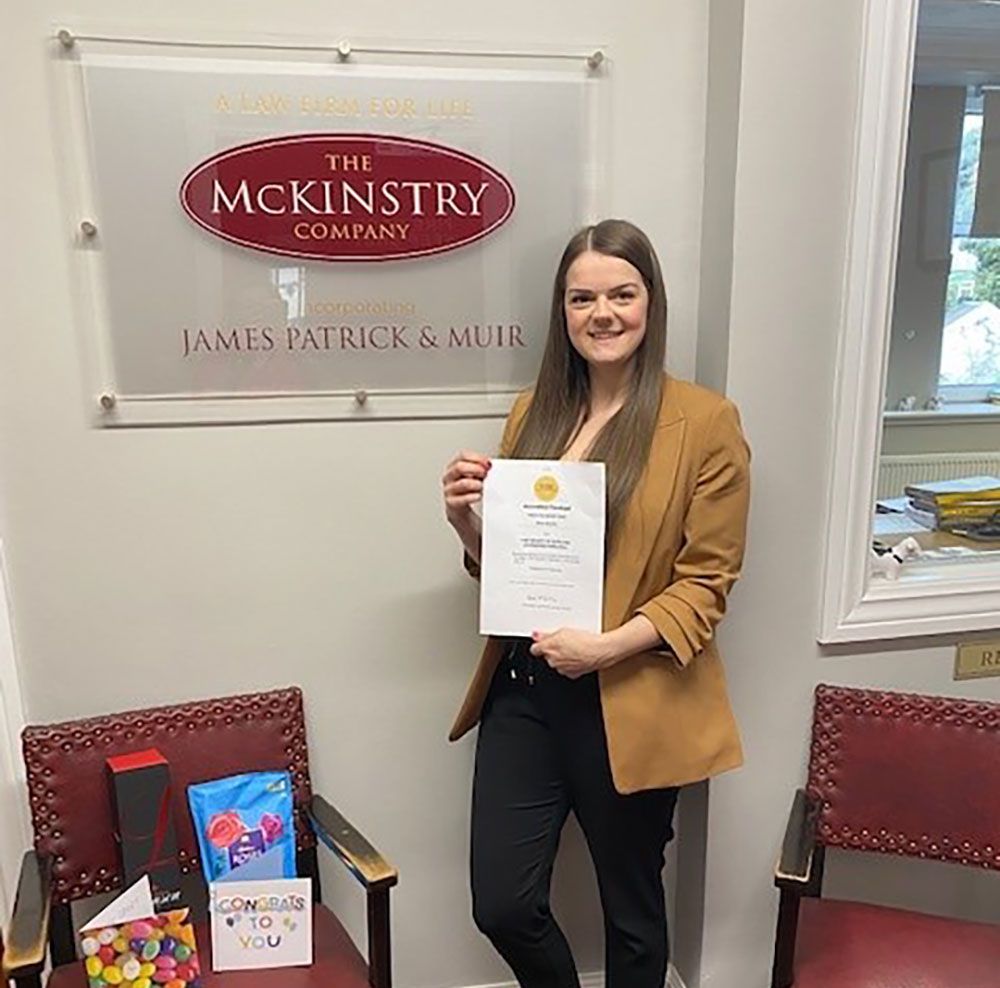Putting a Will in Place - a New Year Resolution
If you are one of the around 60% of Scots who do not have a Will in place, then now is the time! It is a new year, a fresh start and time to get your legal affairs in order.
It has always been incredibly important to have a Will in place. Although it may seem a daunting task, it is the easiest and most cost-effective way of protecting your loved ones and ensuring your estate is distributed as you wish. You can even instruct the drafting of your Will from the comfort of your own living room!
Decisions to Make When Making a Will
A Will addresses numerous matters, including who to appoint as Executor. Your Executor is the person that will deal with the administration of your estate, and it is important that you appoint someone you can trust to carry out your wishes under your Will. You can appoint more than one person and/ or appoint substitutes.
Your Will also outlines how you want your assets to be distributed, whether they are to pass to your loved ones and/ or charities of your choice. This may include bequests of any specific items, such as jewellery or antiques, or specific sums of money.
If you are a parent to a young child, your Will can appoint Legal Guardians for them, should anything happen to you while they are under the age of 16 years. Your Will may also dictate at what age your children would be allowed to receive their inheritance, safeguarding the assets for them while they are young. An age threshold can of course also be applied where you are making provisions in your Will for young grandchildren, nieces, nephews etc.
Your Will may also contain your funeral instructions, giving your loved ones direction and peace of mind during a difficult time.
Legal Rights
It is important to consider and understand legal rights when preparing a Will. In Scotland, surviving spouse and children have automatic rights to their deceased spouse or parent’s estate. These are called legal rights, and they cannot be avoided. This is true regardless of whether a Will is in place or not. Legal rights can be claimed on a person’s net moveable estate, which includes money, shares, cars and personal possessions such as jewellery. Heritable property, such as houses or land, is not included in the calculation of legal rights.
When a person is survived by both their spouse and children, the legal rights entitlement is to a one third share of the net moveable estate. In this instance, the spouse can claim a one third share, and the children are able to claim a further one third between them. When a person is survived by only their spouse or only their children, then the survivors are entitled to claim a one half share of the net moveable estate.
A spouse or children can claim their legal rights, even if they are not named in a Will. However, if they are named in a Will, they cannot claim their share of the estate under the Will as well as their legal rights. It must be one or the other.
Will Myth Busting
Many people believe that DIY wills are just as good as professionally drafted Wills. This is often not the case. Seeking professional legal advice for the preparation of a Will ensures that it is well drafted and adheres to requirements under Scots law. Failure to include correct wording or have the Will signed properly can cause issues after a person has passed away. This ultimately brings undue stress and expense which could have been avoided with a well drafted and executed Will.
There is also a big misconception that a Power of Attorney grants authority to deal with a persons estate after they die. Again, this is not the case. A Power of Attorney is an important and valuable document to have in place for during your lifetime. However, it does not allow for dealing with a loved one’s estate after they pass away. In fact, as soon as an individual passes away, their Power of Attorney falls. Only a Will can deal with a person’s estate after death.
Making a Will during Covid-19 Pandemic
We are able to take instructions from our clients in face-to-face meetings or over various video conference call platforms, such as Zoom, Microsoft Teams, FaceTime, etc. We can even take initial Will instructions over the phone. Once we have taken your instructions, we will prepare a draft Will which will be emailed or posted to you for your review. Once you are satisfied with the document, it may be signed and sent back to us for safekeeping.


